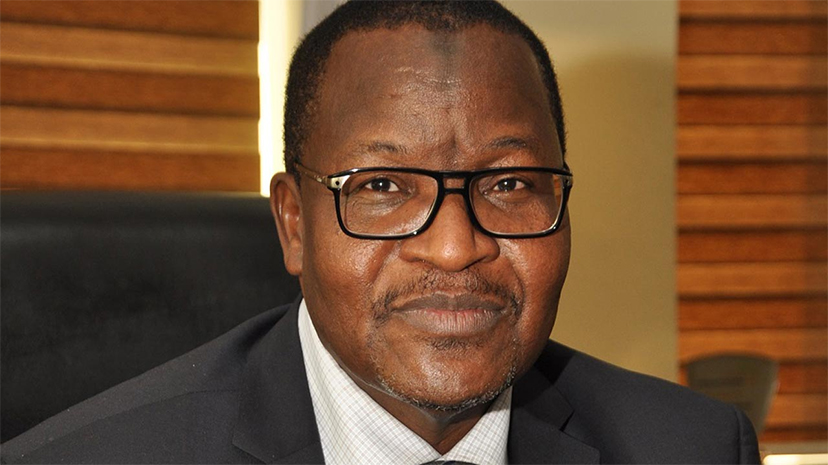The Nigerian Communication Commission (NCC) has stated that the commission will ensure a competitive market for communications services that foster fair inclusion of all players, and promote local content and innovative services in ways that will facilitate new investment, job creation and consumer satisfaction.
Prof. Umar Garba Danbatta, the Executive Vice Chairman/Chief Executive Officer, of NCC who was represented by the Director, Policy Competitive Economic Analysis, Yetunde Akinleye, stated this at a two-day virtual session of the Telecoms Industry Risk Management Conference, starting on 12th December 2022.
The conference, themed; Nigerian Telecommunication Industry: managing the emergence risks and embracing risk opportunities, had several stakeholders in the telecommunication industry in attendance.
According to Danbatta, he said that the focus of the two-day Conference was to bring to the fore the ever-rising uncertainties in global economic and the regulatory/operational risks in areas of increased data security regulations, new partnerships and transforming business models.
His statement reads: I am indeed delighted to be here, to present the Keynote Address at this Telecommunications Industry Risk Management Conference with the theme “Nigerian Telecommunications Industry: Managing the Emerging Risks and Embracing Risk Opportunities.”
I am confident that as stakeholders, we would endeavour to put our best foot forward and examine the myriad of issues that the Country is confronting in the implementation of the National Digital Economy Policy & Strategy 2020 – 2030. This is necessary for enhancing the development of a sustainable ICT sector in Nigeria. The focus of this two-day Conference is to bring to the fore the ever-rising uncertainties in the global economic and the regulatory/operational risks in the areas of increased data security regulations, new partnerships and transforming business models, fast-changing mix of mounting CAPEX burdens, shifting market structures, newly emerging disruption scenarios, regulatory and policy challenges amongst others.
This conference should be able to position the industry to deal with the above-mentioned issues which will be of immense benefit to the telecoms industry and to our individual operations.
The Nigerian Communications Commission, as the regulator of the Telecoms Industry has been in the forefront of ensuring that the telecoms industry is not adversely impacted by these uncertainties/risks. One of our Strategic Visions is to ensure a competitive market for the communications services that foster fair inclusion of all players, promotes local content and Innovative services in ways that facilitate new investment, job creation and consumer satisfaction.
The NDEPS is the guiding document for the Federal Government’s activities to maximise the immense opportunities that are inherent in digital technologies so as to diversify our economy and attain the key national objectives of improving security, reducing corruption, and expanding the economy. We can all acknowledge our highly innovative people and the thriving digital economy, which is creating employment opportunities for Nigeria’s teeming population and enabling wealth creation for Nigerians, irrespective of where they live and work. In addition, we equally note improvements in the Broadband penetration, which is 45.09% as at the end of September 2022 and the development of Digital Industrial Parks (DIP) which will ensure digital skills acquisition, promote innovations, provide jobs and support the overall digital economy agenda of the Federal Government.
All these programmes and initiatives as well as many others would be impacted when we do not take appropriate steps to critically assess the challenges that we are facing as a fast-evolving industry and proffer solutions that sustain the advances in the Digital Economy ecosystem.
While risk management has been critical in our regulatory service delivery, we acknowledge that all stakeholders must be concerned about the varied uncertainties that the Industry is confronting. The Information and Communication Technologies Sector is inherently filled with several business and technology risks. It is therefore important that regulatory risks be minimised to ensure that services are not disrupted and consumers obtain the best and latest services that are globally available. The Commission in a bid to ensure that Operators in the industry enjoy a conducive operating environment has had cause to seek for government interventions and collaborate with other Agencies of Government in addressing major risk like:
• Cybersecurity and Online Fraud
• Regulatory burden
• Double Taxation
• Vandalism of Telecommunication Infrastructures.
• Right of Way challenges.
• Access to Foreign Exchange.
• Inter Industry Debt.
As we may all be aware, this Telecoms Industry Risk Management Conference is the first of its kind in the history of the Commission. This conference, therefore, among other benefits, is designed to expose participants to some of the approaches needed to properly manage the risk exposures, alongside harnessing the opportunities available from such risks. It gladdens my heart to see representatives of key players, and stakeholders of the Industry participating in the event. It is pertinent to note the importance of this Conference in focusing attention to risks that impact all stakeholders, Operators, Consumers and therefore the Commission’s responsibilities in driving the Digital Economy agenda of the Federal Government.
Notwithstanding these daunting challenges, there is hope. The Commission will not relent until these risk elements are properly identified and adequate mitigation strategies communicated to all stakeholders. We will constructively collaborate with all stakeholders in sustaining a conducive environment that will continuously attract both local and foreign investors. This is the only way we can continue to increase our contribution to the Gross Domestic Product (GDP) of the Nigerian Economy and ensure that investors have a higher Return on Investment (ROI).
It is on this note that I implore every participant in this conference to take seriously the theme and sub-themes, carefully chosen to meet the industry’s risk management needs. The Paper presenters are suitably qualified and will give us the needed flair, and flow, to the discussion topics. I am sure that this conference will be highly interactive and value-adding. On this note, I hereby declare this conference open and wish you all successful deliberations.


